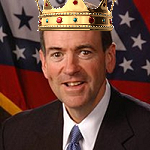My dissertation (oh the joys) partially looked at the age gap in likelihood to vote. But essential likelihood to vote is the chance your vote will make a difference, times the benefits of voting for your preferred candidate, plus the perceived benefit of voting as an act, minus the costs of voting.
So yea lowering the drinking age might encourage a few to vote, but that being said young people in general don't really perceive voting to be a duty like many old people do. The youth vote does tend to pick up when there's radical political change, but the chances of that happening soon is pretty slim in most western nations.
You've got to be pretty desperate as a major party to try and garner the youth vote to gain electoral success.
how to win the youth vote
-

hipeter924 - Citizen
- Posts: 41
- Joined: Sun Apr 20, 2014 11:09 pm
- Location: MD, USA
- Gender:

- Has thanked: 15 times
- Been thanked: 3 times
- Political Leaning: Anarcho Communist
-

hipeter924 - Citizen
- Posts: 41
- Joined: Sun Apr 20, 2014 11:09 pm
- Location: MD, USA
- Gender:

- Has thanked: 15 times
- Been thanked: 3 times
- Political Leaning: Anarcho Communist
Re: how to win the youth vote
DON'T BE A TOUGH GUY. DON'T BE A FOOL! I WILL CALL YOU LATER.
-

Saz - Vice President
- Posts: 10171
- Joined: Mon Mar 17, 2014 9:37 am
- Location: CANADA
- Gender:

- Has thanked: 1189 times
- Been thanked: 1028 times
- Political Leaning: Democratic Socialist
Re: how to win the youth vote
It specifically looked at the last UK general election but you can apply the theory to most nations.
In regards to marijuana I'm not so sure. I mean it's certainly a change that would encourage young people to vote as drugs issues tend to interest young people, but it is a single issue with no guarantee that a party including legalisation in it's manifesto would implement it if it came to power. It would have to be a pretty central plank which could alienate some of the more regular voters.
An example here in the UK of radical change is Scotland. The number of young people in a Scottish constituency had little effect on voter turnout but it had a significant effect in the rest of the UK. Largely down to Scotland looking to gain independence, which is obviously a massive change.
In regards to marijuana I'm not so sure. I mean it's certainly a change that would encourage young people to vote as drugs issues tend to interest young people, but it is a single issue with no guarantee that a party including legalisation in it's manifesto would implement it if it came to power. It would have to be a pretty central plank which could alienate some of the more regular voters.
An example here in the UK of radical change is Scotland. The number of young people in a Scottish constituency had little effect on voter turnout but it had a significant effect in the rest of the UK. Largely down to Scotland looking to gain independence, which is obviously a massive change.
-

Dobby - Senator
- Posts: 1273
- Joined: Tue Aug 21, 2012 11:25 pm
- Location: Gogledd Cymru
- Gender:

- Has thanked: 165 times
- Been thanked: 137 times
- Political Leaning: Socialist
Re: how to win the youth vote
DON'T BE A TOUGH GUY. DON'T BE A FOOL! I WILL CALL YOU LATER.
-

Saz - Vice President
- Posts: 10171
- Joined: Mon Mar 17, 2014 9:37 am
- Location: CANADA
- Gender:

- Has thanked: 1189 times
- Been thanked: 1028 times
- Political Leaning: Democratic Socialist
Re: how to win the youth vote
Obama should just come out in favor of legalizing marijuana right after the midterm. The rest of his presidency is already f**k and he could get out in front of this before the 2016 race starts up in earnest. If it works he already stole the issue for the dems and if it backfires it gives Hillary and the other dems enough time to observe and distance themselves from his position.
go ahead. keep screaming "Shut The f**k Up " at me. it only makes my opinions Worse
-

Philly - Governor
- Posts: 9899
- Joined: Sat Feb 22, 2014 6:36 pm
- Gender:

- Has thanked: 975 times
- Been thanked: 1223 times
- Political Leaning: DEMOCRATIC SOCIALIST
Re: how to win the youth vote
DON'T BE A TOUGH GUY. DON'T BE A FOOL! I WILL CALL YOU LATER.
-

Saz - Vice President
- Posts: 10171
- Joined: Mon Mar 17, 2014 9:37 am
- Location: CANADA
- Gender:

- Has thanked: 1189 times
- Been thanked: 1028 times
- Political Leaning: Democratic Socialist
Re: how to win the youth vote
I know he won't
go ahead. keep screaming "Shut The f**k Up " at me. it only makes my opinions Worse
-

Philly - Governor
- Posts: 9899
- Joined: Sat Feb 22, 2014 6:36 pm
- Gender:

- Has thanked: 975 times
- Been thanked: 1223 times
- Political Leaning: DEMOCRATIC SOCIALIST
Who is online
Users browsing this forum: No registered users and 1 guest
